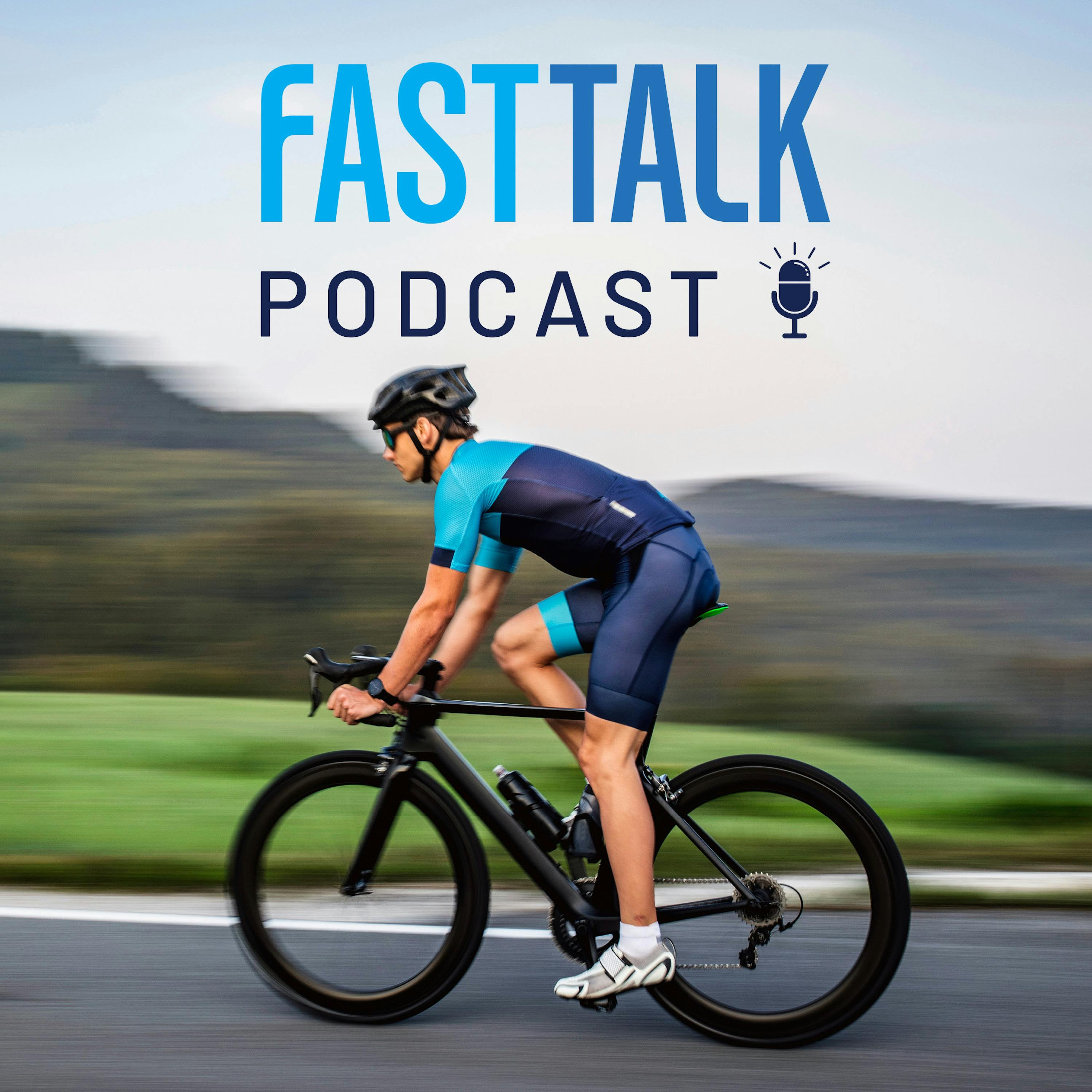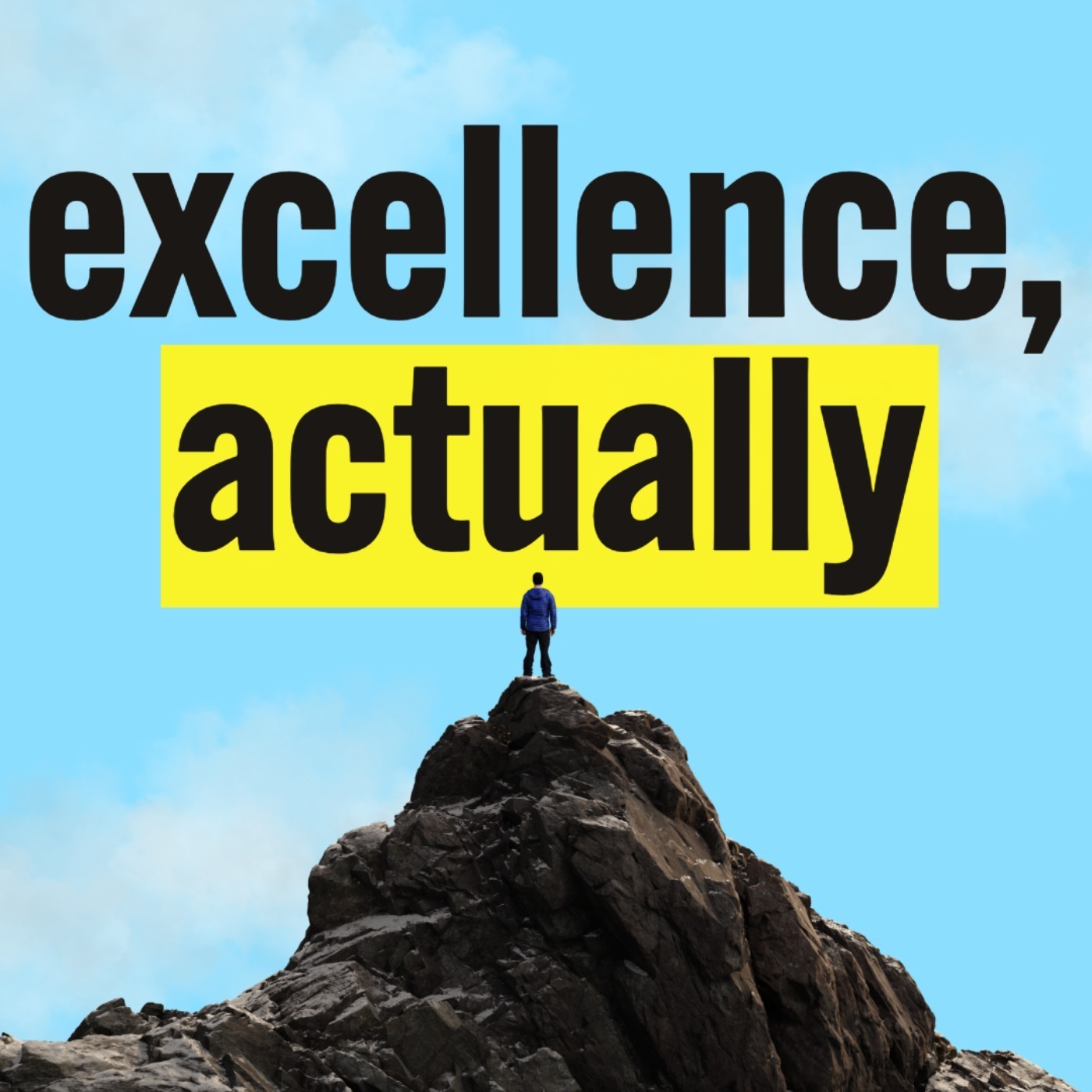
The Full Circle Podcast
The Full Circle Podcast offers listeners insights into topics and ideas pertaining to endurance sports training and racing. Hosted by Coach Laura Henry, this podcast releases episodes weekly and discusses training best practices, effective workouts, compelling research, coaching methodologies, physiology and recovery, and the best tools to help guide you unlock your potential and achieve your best performance.
The Full Circle Podcast is part of Full Circle Endurance, which is an endurance sports coaching company that serves athletes in many endurance sports, including triathlon, running, cycling, and open water swimming.
To learn more about how Full Circle Endurance can help you reach your goals, please visit us at: https://FullCircleEndurance.com/
The Full Circle Podcast
How to Make Time for Training & Goals
Use Left/Right to seek, Home/End to jump to start or end. Hold shift to jump forward or backward.
Endurance sports goals don’t achieve themselves. They require time, effort, and hard work.
The average age-group athlete is a busy person who has a lot of demands competing for their time. However, the average age-group athlete is also usually driven to want to accomplish the goals that they set for themselves.
How can athletes make the necessary time for the training that is necessary to reach their goals?
Read this Article:
https://www.fullcircleendurance.com/blog/how-to-make-time-for-training-goals
Ready to start training? Check out our Coaching and Training Plan options:
Learn more about Full Circle Endurance: https://FullCircleEndurance.com/
Submit questions to be answered on the show: https://FullCircleEndurance.com/podcast/
Reach out to Coach Laura Henry: Hello@FullCircleEndurance.com
Disclaimer: The information shared in this podcast is for educational and informational purposes only and is not a substitute for professional medical advice, diagnosis, or treatment. Always seek the advice of your qualified healthcare provider with any questions you may have regarding a medical condition or health goals. Never disregard professional medical advice or delay in seeking it because of something you heard on this podcast. Reliance on any information provided is solely at your own risk.
(0:04 - 0:19)
Hello, and welcome to the Full Circle Podcast, your source for insights into the science and art of endurance sports training and racing. I'm your host, Coach Laura Henry. Today is Coach Tip Tuesday.
(0:20 - 0:51)
How are you doing so far in terms of making progress towards your goals that you've set for yourself this year? If you're like a lot of people, the optimism caused by the fresh start effect of a new year is well worn off by now, and you may be struggling with motivation and or finding the time to accomplish what you initially set out to do when you forecasted into this year and into this season. There's no shame in this. It's something that happens to a lot of people and to the vast majority of people who set new year's resolutions.
(0:52 - 1:26)
That being said, endurance athletes do tend to be more driven and tenacious than the average person, which is how they end up being endurance athletes in the first place. As an endurance athlete, you are in the 0.05%, five hundredths of a percent of all humans who train for endurance sports events, such as running races, cycling races, and triathlons. But even endurance athletes are human and thus they may find that they are lacking motivation and or that they are struggling to progress toward their goals.
(1:26 - 1:41)
Even goals that are significant and meaningful to them. This is especially true because the average age group athlete is a busy person who is time starved because they have so many competing demands for their time every day. I need to find the time to train.
(1:42 - 1:58)
This sentence or some similar version of it is something I've heard often from athletes over the years. However, it's a false and misleading statement, though most people saying it are not really conscious of that. Time cannot be found.
(1:59 - 2:16)
It must be traded. Endurance sports goals do not achieve themselves. Athletes need to dedicate a lot of emotional, temporal, financial, and energy resources in order to achieve any goals that they set in running, cycling, triathlon, or open water swimming.
(2:17 - 2:46)
That being said, the most nebulous and precious of the resources that endurance athletes dedicate to their goals is time. Seneca, a Roman Stoic philosopher, pointed out in his essay, De Brevite Vitae, I probably butchered that. The English translation is On the Shortness of Life, that humans are incredibly stingy with and fiercely protective of our money and other material things while simultaneously being comically wasteful with our time.
(2:47 - 3:10)
Seneca hypothesizes that this is so because we do not properly value time. And he further hypothesizes, quite accurately in my opinion, that we do not properly value it because time appears to be intangible. While Seneca wrote this essay nearly 2,000 years ago, his observations still hold true today because human nature has not changed very much since then, if at all.
(3:11 - 3:37)
Humans still covet money, which they can acquire more of, and do not spend or protect their time, which they cannot get more of, nearly as intentionally. The wisest and happiest people I've encountered in my life so far are people who understand that time is finite and who value it accordingly as the most valuable of all resources that we have access to in our lifetimes. Life is a zero-based budget.
(3:37 - 3:58)
Every single one of you listening to this episode is already using all 24 hours that are available each day. Unlike financial budgets, we cannot go into debt with time. There isn't any way, no way, that we can borrow an extra hour and all of a sudden have 25 hours in a day to get done what we want to get done.
(3:58 - 4:29)
No matter how much we may not like it, we are forced to stay within the confines of our allotted hours every single day of our lives. When something takes longer than we expect it to, the excess time used beyond what we expected needs to come from some other activity in our day. For instance, if a work project causes you to stay late at work, you may miss dinner with your family, a sporting event for your kids, or sleep that you would have had that night.
(4:29 - 4:55)
A lot of us rebel against the truth that time is limited and finite. My hypothesis why we do this is that we, either consciously or unconsciously, do not want to accept the reality that we are mortal and that we are going to die. Many, many people subscribe to the fantasy that they will be able to do more than is actually possible for them to do if they just put the right system in place in their lives.
(4:56 - 5:34)
We often desperately want to believe that we can do it all. However, in his book, 4,000 Weeks Time Management for Mortals, Oliver Berkman makes the point that it can be exceptionally liberating to accept the truth that time is limited and that there will, in fact, only ever be a limited number of things that we can get done in a day, in a week, in a month, or over the course of our entire life. Rather than futilely trying to do it all, we can and should learn to prioritize our time and to allocate it to the things that matter most to us.
(5:34 - 6:00)
By doing this, we can heal our fractured and often torturous relationship with time management. While a lot of us instinctively rebel against the idea of restriction, accepting hard truths alongside setting appropriate and good boundaries and limits on ourselves can actually provide relief and feel liberating. Paradoxically, too much autonomy or too much flexibility in our days can be disastrous.
(6:00 - 6:19)
Personally, I have found that I get more done when I'm busier because time feels more tangible to me when my calendar is full. There are hard boundaries on when I need to be done doing something and moving on to doing something else. As a result, when I'm busy and I have a lot of things going on, I don't procrastinate on tasks or other things in my life.
(6:20 - 6:45)
I make decisions without overthinking them, and I prioritize well when my options are limited. I have observed the same thing for many of the athletes who I coach who also have full calendars. By contrast, if I don't have anything on my schedule for too long of a period of time, such as an entire day or several days, I am not as good at getting things done or at prioritizing what's actually important to me.
(6:45 - 7:16)
You've probably experienced this phenomenon yourself. If you have a busy day with a lot of work tasks, commitments, and appointments, and your only opportunity for a workout is first thing in the morning, you probably get it done because you know you will not have another chance if you miss that window of time. However, if you don't have any commitments on a given day, you feel the openness of that opportunity and therefore feel like you can get your workout done at any time because your options for what you can do with your time on a day like that are seemingly infinite.
(7:16 - 7:57)
As a result, you might procrastinate doing a workout or not even get it done at all if you procrastinate enough. So what does prioritizing our time mean in a practical sense? When you want to have more of something in your life, such as training hours, workouts, or the supporting elements that enhance endurance sports training, you should also try to decide ahead of time what you are going to be doing less of to make space and time for the thing you want to have more of. Saying you want to do more training without also saying what you want to do less of is a recipe for failure.
(7:57 - 8:08)
Saying yes to one thing always means saying no to at least one of something else, if not more. In life, there are no solutions. There are only trade-offs.
(8:09 - 8:18)
If you want to have more time for training, you will need to spend less time on something or some things else. Period. Full stop.
(8:18 - 8:26)
No exceptions. Ever. If you don't decide ahead of time what will be sacrificed, it will get decided for you.
(8:26 - 8:45)
And what gets sacrificed very well may be something that you are ultimately unhappy about sacrificing. For instance, if you add training to your day, you may find that you're spending less time with your family as a result. This is probably not the trade you would have self-selected in advance.
(8:45 - 9:10)
Thus, it's better for you, both acutely and in the long run, pun intended, to make this choice about what you are willing to do less of ahead of time. By doing so, you are exercising control and autonomy over your life versus letting your life happen to you. You can and should decide what gets your first fruits when it comes to your time.
(9:10 - 9:26)
When it comes to endurance sports, it's very important to remember what a goal actually is. A goal is a thing that you have deemed to be a higher priority than other things in your life. It is not enough to just say that you want to do something and or that something is important to you.
(9:27 - 9:51)
You need to demonstrably show that it is important to you through your daily actions and decisions. You need to do less of something that isn't as important to you in order to make way for what you have said is more important to you. So, in order to make time for training and or to train more than you recently have been, you need to decide what else in your life you will be doing less of.
(9:51 - 10:17)
An important part of this process is understanding exactly what you are currently spending your time on. To do this, you can use a tool or an app such as Clockify to track down to the minute how you are actually spending your time. I recommend doing this for at least three to seven days, but tracking everything you do over the course of a day for even a single day can be extremely enlightening and reap heaps of self-awareness.
(10:17 - 10:45)
In order to successfully do this and glean useful insights, you will need to track everything you do throughout your day, including but not limited to work, family tasks to include caring for children, spouses, pets, parents, etc. Household tasks such as cooking meals, cleaning, yard work, etc. Personal care tasks such as showering, doing your hair, applying makeup, etc.
(10:45 - 10:59)
Recreation activities and or hobbies. Social time to include time spent with friends or neighbors. Time spent watching TV or on devices to include texting, scrolling social media, reading the news, etc.
(11:00 - 11:32)
Many, many people think that they know how they are spending the hours in their days, but they are not actually as self-aware about this as they imagine that they are. Warning, I've encouraged many athletes to do this tracking exercise over the years, and many of them have quit early on because they are unhappy with what they are seeing when they truthfully track how they are spending the hours in their day. I've actually had athletes tell me that they are disgusted with how they are spending their time, and when confronted with that disgust, many of them shy away from it.
(11:32 - 12:01)
While I absolutely understand this instinctual reaction, it's important to actually face what you're doing as facing it is the only way you can develop self-awareness and therefore potentially make changes to unattractive or undesired habits and behaviors. This is yet another example of why it's important to face and confront the discomfort dragon. Self-awareness requires you to turn your gaze inward and pay attention to yourself.
(12:01 - 12:28)
It requires you to observe and understand your behaviors, habits, and choices, the strong and attractive ones, as well as the unattractive ones that you might not like to see. By tracking how you are spending your time, you will develop an awareness of what you are actually doing on a day-to-day basis. Once you understand that, you can decide which things you value most and therefore which things you will prioritize spending your time on each day.
(12:28 - 12:59)
If training is important to you, you need to say out loud what is less important than it and be okay with eliminating something in favor of being able to spend time on training. Choosing what we spend our time on is important, but what we choose not to spend our time on is also equally as important. After all, there will always be a significantly higher number of things we cannot do and are not doing compared with what we can actually do and are doing.
(12:59 - 13:21)
That being said, all too often, sleep is the first thing that people will sacrifice, both consciously and unconsciously, to fit more things into their day. They will get up earlier or stay up later, or both, to accommodate the things that they want to do. However, sleep is one of the worst things to do less of, for all humans, not just athletes.
(13:21 - 13:43)
There is nothing, and I mean nothing, that takes the place of what sleep does for the human body. The best long-term solutions for health, successful time management, and goal achievement prioritize sleep rather than sacrificing it. Anytime we decide to do anything new or additional in our lives, we need to do less of something else we are already doing.
(13:43 - 14:01)
Time is finite, and each day of our lives is a zero-based budget, time-wise. In order to make time for the training that is necessary to support the goals that you have set, you need to decide what you are going to do less of in your life. Ideally, this choice is intentional, and it's made ahead of time.
(14:01 - 14:30)
By doing this, executing some thoughtful pre-planning, you can ensure that training is fitting into your life versus trying to fit your life into your training, and that you will feel replenished and built up by your training, not broken down and defeated by it. This is the best way to make time for your goals and your training. That was another episode of the Full Circle Podcast.
(14:31 - 14:47)
Subscribe to the Full Circle Podcast wherever you listen to your favorite podcasts. If you like what you listen to, please be sure to leave us a rating and review, as this goes a long way in helping us reach others. The thoughts and opinions expressed on the Full Circle Podcast are those of the individual.
(14:47 - 15:11)
As always, we love to hear from you, and we value your feedback. Please send us an email at podcast at fullcircleendurance.com, or visit us at fullcircleendurance.com backslash podcast. To find training plans, see what other coaching services we offer, or to join our community, please visit fullcircleendurance.com. I'm Coach Laura Henry.
Thanks for listening.
Podcasts we love
Check out these other fine podcasts recommended by us, not an algorithm.

Fast Talk
Fast Talk Labs
excellence, actually
Steve Magness, Brad Stulberg, & Clay Skipper
Deep Questions with Cal Newport
Cal Newport
